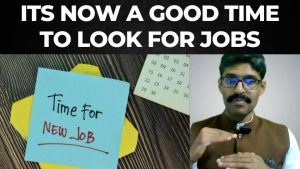The Insider Guide to Careers
Insider information, secrets and tips about getting hired and building careers. For employees and job candidates.
Hate to say this, but there is no shortcut. If there is a shortcut, it is illegal or has some dangerous consequences you cannot foresee. A lot of what I am writing about is for university students. Still, the same lessons apply to mid-career professionals in traditional jobs and wondering if they should transition to the tech industry. With the technology boom taking over sectors and industries, every employee has to worry about their future and ask themselves what the right time to reskill is. Preparing for careers in the long term involves a lot of hard work, sacrifices, and patience. Payoffs through skill investments take a very long time, and you would rarely meet any monetary success during this waiting period. Welcome to the harsh reality of long-term career success.
The mass migration towards computer science
Last week, I was conducting a career workshop for hundreds of students at IIT Roorkee, one of the premier engineering institutions in India. For two reasons, almost every student was obsessed with finding software engineering or product management jobs. The reasons were
There is a wave of students in the core engineering branches like Mechanical Engineering and Civil Engineering who think their disciplines have no future. They are dramatically deserting their fields to choose coding and data analytics jobs. When people ask me whether they need to shift their focus to computer science, I answer that while computer science (CS) skills are good to possess, CS careers are not for everyone.
Why Software Engineering careers are not for everyone
To be proficient at coding, people must practice for at least 4-5 hours a day for two years. To be a competitive coder, students need to put in 6-8 hours of work for 3-4 years. When students get high compensation packages from High-Frequency Trading (HFT) companies and software companies, the media and parents miss out on the fact that a lot of preparatory foundational work goes into becoming a great coder. In a certain way, software jobs are democratic. It doesn’t matter where you go to school; what matters is your hard work and passion. For a mechanical engineer, the switch to software jobs is complicated. They have to compete with CS students and, hence, have to major in Mechanical engineering and Computer Science. The dual focus is far more complex than just majoring in one discipline like Computer Science as a CS major.
Many students run away from Computer Science because it is challenging, analytical, and just not fun. The truth is that all jobs in the future will require skills in Data Analytics, Systems Design, and logical thinking. By not picking up these skill sets, one’s career can decelerate down the lane. A cardinal mistake is that every learner should not try for mastery right on the first day. Picking up a skill takes a lot of time. Every day and every failure only brings you closer to the destination.
Trends change
People should stop thinking like sheep when it comes to evaluating career options. I remember that in the 2000s, the buzzword was about Finance and Investment Banking jobs. Few people wanted to be in software then. On the other hand, things have changed dramatically in the present. Few talk about Wall Street now; it is all about Silicon Valley. The path of easy money, entrepreneurship, unicorns, and crazy compensation lures everyone. For all we know, something else could be attractive careers tomorrow. It is challenging to create a career when chasing the shiny trinkets that society throws your way.
How to make wise career decisions
Now let us come to making better choices for your career. One important rule is to forget what others want you to do or what society expects from you. Ask yourself instead as to what you want from yourself. A good question is – What would you do to build a career if money was never a constraint?
You may have to do specific high-paying jobs early in your career to pay your student loans and salvage your family’s financial situation. It may take a long time, but things will improve someday. When things get better, are you ready to chase your dream and do the things you care about? For most people, the answer is no. They are too mature, cynical, and jaded to change.
One of the students I mentor is an IIT student who is doing his doctoral degree at Berkeley. He had a choice of joining an HFT company and making 300-400,000 USD a year. Instead, he thought that working on skills and knowledge is better than making quick money early in one’s career. The truth is that many finance jobs are toxic and can work you to proverbial death. They pay more because they want to own you completely.
When people place their interests at the top and place society’s expectations much lower, they suddenly find much freedom to do the things they value. This freedom makes people more happy. Money and prestige are best gained gradually over time when one possesses the maturity to handle them. Professors are an example of people who chase their passion over making money. Academia is no money spinner. Any Professor will say that academic freedom and interests trump income. Across all of human civilization, there has never been an easy way to make money. People get paid a premium only because they have a unique and scarce skillset. Gaining these capabilities takes effort, sometimes even decades.
It is precisely these groups of doctors and researchers who have the highest rates of job satisfaction. One of the reasons why they are happy is that they focus on upskilling rather than making money early in their careers. This lodestar helps them make the right decisions.
Lessons from ISRO scientists
A famous example is the ISRO scientists in India. Most do not have stellar economic or academic backgrounds. Check my earlier post to read more. Many have spent 15-20 years working on space projects to get professional experiences and doctoral degrees to gain exposure to the latest scientific advances. While they are paid reasonably well by Indian standards, they can easily make 10-20 times what they earn by going abroad. But for the scientists, it is not money alone; it is about national pride and acclaim. These scientists are the toast of the world and can teach NASA many things about conducting research cost-effectively. There are some ineffable benefits that money cannot buy.
The complex answer to building a career for the long term is to focus on building a set of sustainable skills for the future. So stop focusing on money and start focusing on where you can add value. Ideally, your career should be at the Ikigai intersection of what you love, what you are good at, what the world wants, and what you get paid for. Out of the four circles, the first circle is the most important; every other circle follows. If you do what you love, you will improve dramatically over time. If you are extremely good at anything, people worldwide will come to you seeking your advice and be willing to shell up whatever is needed for the interaction. So, focus on your passion, where you can add value in a way nobody else can. I really think that every human in this world has a unique potential only they can realize. The challenge is to discover what that one gift is. Finding it may take a long time, but it exists inside your mind. Once this voyage of self-discovery is complete, everything else will fall into place. Over time, everyone has the ability to excel in something that nobody else can.
This is not mere tripe. I heard a similar homily from a school friend when I was in school and remember thinking that it was a lot of BS. My friend was trying to tell me that one can be an expert in a mundane field like birdwatching and can be world-famous if they are excellent in that narrow field. He, in fact, went on to be a co-founder in multiple startups in Silicon Valley, had much professional success, and is now a CTO in a big tech unicorn. With his attitude, even if he failed in tech, he would have done well, even if it was ornithology – a passion both of us shared.
The next trillion-dollar opportunities
Let me close by sharing some thoughts for students reading my essay. The future jobs will need Mechanical and Civil Engineers who know computer science. One doesn’t need to be a competitive coder. Only some people can do that as a career. Knowing how to work with data at a good competency level can make you stand out. The great opportunities of the future will occur in the intersections and adjacencies where automation has made little or no impact. I am thinking of machine shops and construction. Mechanical and Civil Engineers will do a much better job of automating these sectors and workplaces compared to Software engineers who have no idea what these traditional workplaces are. The greatest opportunities of the future and the next trillion-dollar opportunities will emerge from these traditional sectors, which are untouched by automation and data. Once you can align your passion and the opportunity, in the long term, you will 100% meet great success.
The challenge in making career decisions is seeing the present and deciding our branch of specialization. The jobs a decade later will be very different from the jobs of today. Learning on the job is not always possible because companies expect you to super-specialize in one area. Companies do not pay for you to experiment, so it is easy to metastatize. The only way to solve this problem is to ask yourself every six months whether you are learning something new and like your work. If the answer is consistently no, then it is time to rethink your skill inventory and relearn. Check out my post on future skills to learn more.
Sadly, most people wallow in their current scenario, like frogs trying to swim in boiling water, getting hotter by the minute. They cannot make the jump!! Never be that person.
For more such articles, follow my Community and LinkedIn channels.



